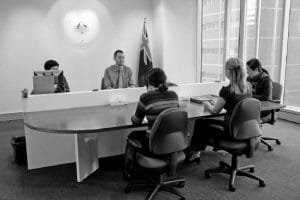Each year, the department of Immigration and Border Protection issues a Consolidated Skill Occupation List (CSOL) in order to assist people wanting to migrate to Australia to find out what skills and what occupations are in demand in Australia. As the Australian economy experiences growth every year job demand shifts and therefore the government adjusts the CSOL with occupations that cannot be filled by Australians.
The Department publishes this comprehensive consolidated skilled occupation list each year on their website available here.
The skilled occupation list targets people with the right occupations used to migrate to Australia under Skilled Independent (Subclass 189) Visas that can provide in-demand skills to the Australian economy over the medium to the long term. As such, the Subclass 189 is an effective pathway to permanent residency in Australia. Any independent person who intends to permanently migrate to Australia and is not applying for Employer Sponsored Visa should examine whether their particular occupation is listed on the consolidated skill occupation list before applying.
If you have an occupational on the Consolidated Skill Occupation List (CSOL), you can apply for a points based skilled visa to the Department of Immigration and Border Protection. In order to do that, you first need to submit what’s known as an Expression of Interest (EOI).
The primary criteria for a General Skilled visa is:
• Your occupation or skill must be on the relevant skilled occupation list.
• You must obtain a skills assessment for that occupation.
• You must be under the required age of 50 years old.
• You must acquire the relevant points as required by the criteria.
• You must have the required level of English.
As mentioned above, the skilled occupation list is subject to yearly change. During this annual change, many occupations are removed or added to the list. Generally, the department uses this to regulate the supply of labor, skills and occupations it dims that are in demand in a particular year. On 11 March 2019, the Department updated the CSOL with a number of new occupations affecting General Skilled and Employer-sponsored migration.
In 2019, 36 occupations have been added to the Skilled Occupation List:
• Artistic Director
• Arts Administrator or Manager
• Biochemist
• Biotechnologist
• Botanist
• Chemist
• Conservator
• Dancer or Choreographer
• Economist
• Engineering Professionals NEC
• Environmental Consultant
• Environmental Manager
• Environmental Research Scientist
• Environmental Scientists NEC
• Food Technologist
• Footballer
• Geophysicist
• Horse Trainer
• Hydrogeologist
• Life Scientist (General)
• Life Scientists NEC
• Marine Biologist
• Metallurgist
• Meteorologist
• Microbiologist
• Mining Engineer (excluding Petroleum)
• Multimedia Specialist
• Music Director
• Musician (Instrumental)
• Natural and Physical Science Professionals NEC
• Petroleum Engineer
• Software and Applications Programmers NEC
• Statistician
• Tennis Coach
• University Lecturer
• Zoologist
Keep in mind that there are different occupation lists for Skilled Migration and Employer Sponsored migration – even though they have the same names. You should check with a migration agent to ensure you are referencing the correct list.
Summit Migration is an international migration company and our offices are based in South Brisbane. We have a team of expert registered migration agents and solicitors ready to take all the complexity out of the skilled occupation lists and working visas for those who intend to immigrate to Australia. We’ve been operating in the region for years, and have extensive combined industry experience. Let us help you migrate to Australia with our migration service for you and for your family.
<








